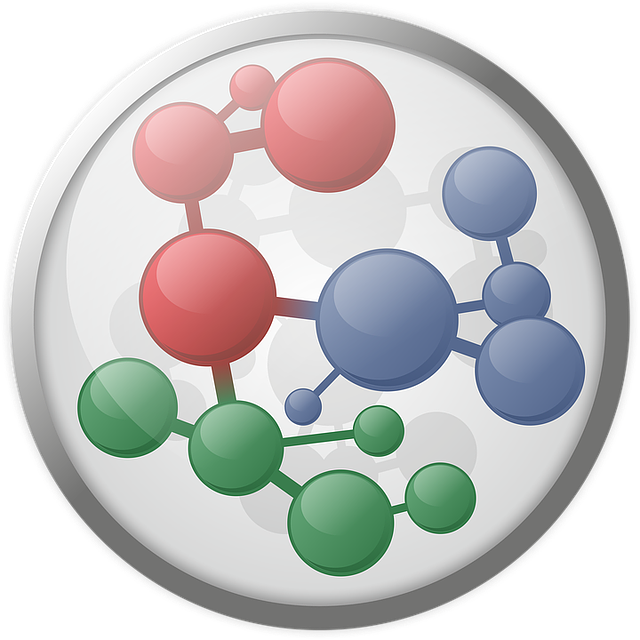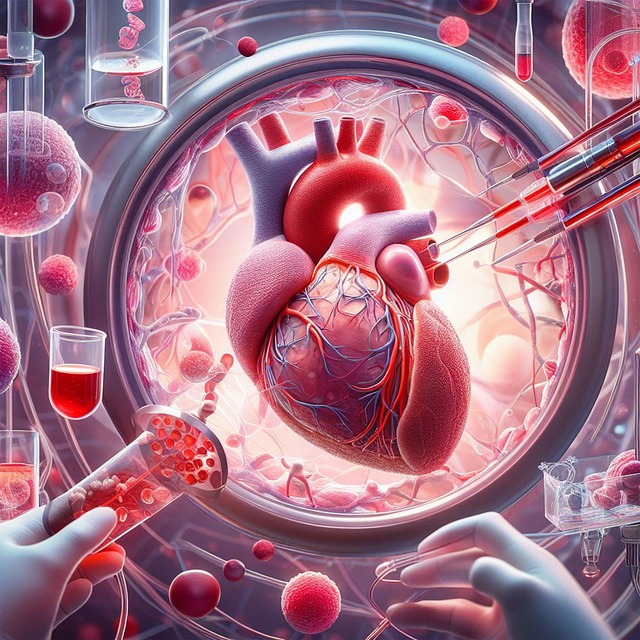Customized growth factors and optimized stem cell culture media are crucial for harnessing stem cell therapies' full potential. Rigorous testing ensures stability, viability, and functionality through precise pH, nutrient, and growth factor control. Optimization extends to stem cell bioreactor media, refining culture conditions for efficient expansion while adhering to clinical-grade standards. Chemically defined, xeno-free media enhance therapeutic use, boosting success rates in stem cell transplantation and regenerative medicine outcomes. Future advancements aim to create sophisticated, long-term stem cell culture solutions for improved efficiency and novel therapies.
“Customized growth factors represent a breakthrough in regenerative medicine, harnessing the power of stem cell culture media to unlock unprecedented potential. This article delves into the transformative role of specialized media in stem cell cultivation and its impact on cellular responses. We explore customization techniques, advanced proliferation methods, and diverse applications, from research laboratories to therapeutic interventions. Furthermore, we offer insights into future innovations, highlighting the evolving landscape of growth factor media.”
- Unlocking Potential: Stem Cell Culture Media's Role
- Customization: Tailoring Growth Factors for Success
- Advanced Techniques: Enhancing Cell Proliferation
- Applications: From Lab to Therapeutic Use
- Future Outlook: Innovations in Growth Factor Media
Unlocking Potential: Stem Cell Culture Media's Role

Customized growth factors play a pivotal role in unlocking the immense potential of stem cell therapies. At the heart of this process lies stem cell culture media, a specialized nutrient solution that facilitates the growth and maintenance of these versatile cells. The significance of stem cell culture media cannot be overstated; it provides the essential microenvironment required for stem cells to proliferate, differentiate, and maintain their pluripotency.
Media optimization for clinical-grade stem cells is a meticulous process involving rigorous testing and tailored adjustments. Ensuring stem cell media stability testing is crucial to maintaining the viability and functionality of these cells. This involves careful consideration of factors like pH levels, nutrient concentrations, and the inclusion of specialized growth factors. Stem cell bioreactor media optimization further refines the culture conditions, enabling efficient cell expansion while adhering to stringent clinical-grade standards.
Customization: Tailoring Growth Factors for Success

Customized growth factors play a pivotal role in achieving success within stem cell culture media. By tailoring these components, researchers and biologists can optimize cellular responses and enhance the overall performance of stem cells. Each cell type, whether it be mesenchymal or otherwise, has unique requirements, and understanding these nuances is essential for effective cultivation. For instance, efficient mesenchymal stem cell harvest relies on carefully formulated media that supports proliferation while maintaining stability. This customization extends to various aspects, including nutrient profiles, growth factor concentrations, and even the addition of specialized supplements.
Stem cell culture quality assessment guidelines highlight the importance of regular monitoring and adjustments in media composition. Ensuring media stability testing is crucial to maintain a consistent environment for cellular development. By adhering to these protocols, researchers can foster ideal conditions for stem cell expansion, differentiation, and functional preservation. Such precision contributes to the success of various applications, from regenerative medicine to in-vitro research, ensuring the highest quality cells for experimental or therapeutic use.
Advanced Techniques: Enhancing Cell Proliferation

In the realm of advanced biological research, the customization of growth factors has revolutionized cell culture processes, particularly in stem cell culture media. By fine-tuning the composition and environment, scientists can now promote enhanced cell proliferation and differentiation. This involves precise adjustments to the stem cell media pH balance, ensuring optimal conditions for cellular growth. Techniques have evolved to create xeno-free and pyrogen-free media, eliminating potential contaminants that could hinder research progress.
The art of crafting specialized stem cell media formulations allows for tailored nutrition and support, catering to the unique requirements of different stem cell types. These advancements enable researchers to navigate the intricate paths of cell culture, unlocking new possibilities in regenerative medicine and cellular therapies.
Applications: From Lab to Therapeutic Use

Customized growth factors have revolutionized the field of stem cell research and therapy. Originally confined to the laboratory setting, these specialized components of stem cell culture media now play a pivotal role in maintaining and differentiating stem cells for therapeutic use. Chemically defined stem cell growth factors offer a precise and controlled environment, free from animal-derived components, which is particularly beneficial for clinical applications.
The application of stem cell maintenance media formulations, specifically tailored for hematopoietic stem cells, has enhanced the efficiency of stem cell transplantation and regenerative medicine. By optimizing media compositions, researchers can support prolonged stem cell viability, promote differentiation towards desired cell types, and minimize immune rejection—all crucial aspects for successful therapeutic outcomes in a wide range of medical conditions.
Future Outlook: Innovations in Growth Factor Media

The future of customized growth factors lies in the continuous evolution of stem cell culture media. As research progresses, scientists are developing more sophisticated long-term stem cell culture solutions that offer precise control over cellular microenvironments. These innovations are driven by the need to create robust stem cell media formulations with defined components, enabling researchers to better understand and manipulate cellular behavior. By optimizing these media, we can enhance our ability to study and harness the potential of stem cells in various applications, from regenerative medicine to drug discovery.
With advancements in technology, expect to see more tailored stem cell media designed to support specific research objectives. These custom solutions will not only improve the efficiency of long-term stem cell culture but also open doors to novel therapeutic approaches. The ongoing refinement of defined stem cell media components promises to revolutionize the field, providing researchers with powerful tools to unlock the full capabilities of stem cells and drive medical breakthroughs in the years to come.
Customized growth factors, enabled by advancements in stem cell culture media, are revolutionizing therapeutic applications. By tailoring cultural conditions, researchers can optimize cell proliferation and unlock new potential treatments. As we look ahead, innovations in growth factor media promise to further enhance our ability to harness the power of stem cells, opening doors to a future where personalized medicine becomes the norm.














